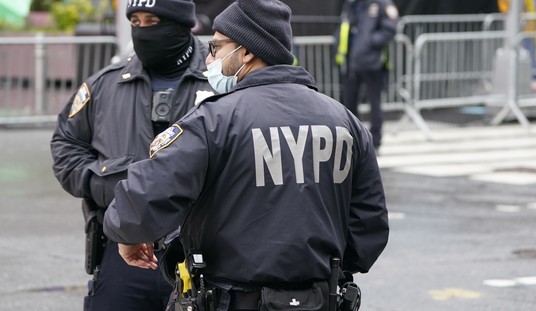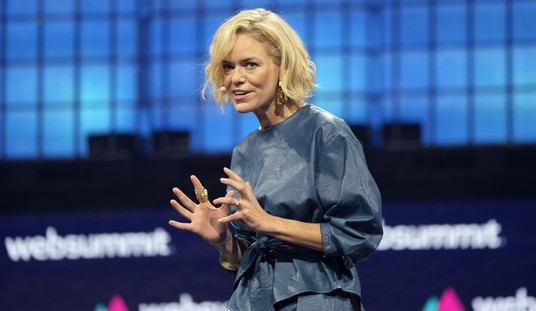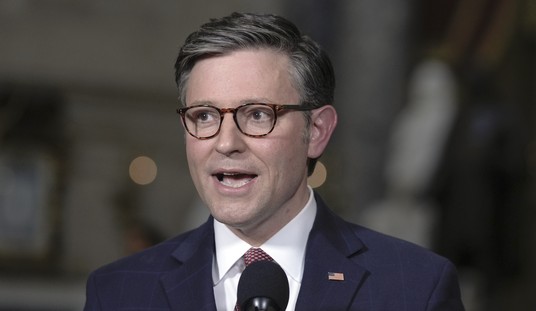Having spilled many pixels in defense of Phil Robertson, who got suspended from the hit TV show “Duck Dynasty” because of his religious faith, and having spilled even more pixels in defense of traditional marriage, I should make it clear that I don’t personally consider homosexuality sinful. I always receive a number of emails with Biblical citations when I say that. Thank you, everyone, but I know what the Bible says on the subject, and I wholeheartedly respect what that means to you. I disagree.
And that’s what the latest round of free speech dust-ups is all about, isn’t it? Tolerating what we disagree with. Even more to the point, it’s about tolerating what we disapprove of. Which is the point of having tolerance, really. It’s just rubbish taking up space on your mental shelf if you can’t apply it to what you disapprove of. It doesn’t take much effort to “tolerate” what you approve of, or what doesn’t matter to you at all.
Conversely, tolerance cannot exist if disapproval is forbidden. There’s no point in talking about a “tolerant” society if people are not allowed to frown upon anything. We’re moving toward a singularity of government compulsion, in which everything is either mandatory or forbidden. There has to be room for society – not a unified collective hive mind, but individual cultures and societies co-existing as fellow Americans – to express disapproval for that which is legal, and celebrate that which is not compulsory.
Along those lines, I didn’t hear Phil Robertson advocating any sort of oppression against homosexuals, legal or societal. On the contrary, he went out of his way to express love for his fellow men and women. What he said has been misrepresented as “hateful,” and deliberately misquoted to assert that he declared homosexuality equivalent to bestiality. But in truth, his GQ interview was nothing less than the perfect expression of tolerance. He expressed strong disapproval of something, and explained why, without urging any action to eradicate it. “Tolerance” is a meaningless word, if it doesn’t cover that controversial GQ interview.
Of course it was “controversial.” Who can blame gay people for feeling offended when their behavior is called “sinful?” I would imagine many of them disapproved of Robertson’s comments in much the same measure that he disapproves of their conduct. Is it too much of a stretch to say that secular culture regards what he said as sinful… a sin against the rules and preferences established by the cultural elite?
So why not expect the same level of tolerance from them that Robertson displayed? I’m sure the gay-rights community would be outraged at the suspension of a TV star who expressed enthusiastic support for their agenda in a magazine interview. But they don’t seem to have any trouble demanding that level of intolerance and rejection for ideas they refuse to tolerate. They have become what they once despised.
We’re not really moving toward a society without boundaries of disapproval; we’re just haggling over where the boundaries should be drawn, and which taboos should be kept behind electrified fences. This year has also seen stories of private citizens placed in legal jeopardy because they refused to provide services for same-sex wedding ceremonies. There was a point in the marriage wars when it was suggested that maybe the government should butt out of marriage completely. I don’t think gay marriage proponents would go for that; I doubt they would ever have been satisfied with it. Who would prosecute the bakers for refusing to make them cakes?
A culture that thinks everything its power players disapprove of should be forbidden is also a culture that has trouble with the concept of celebration. Persuading people to agree with ideas is much harder than intimidating them out of disagreement. Mockery is easier, more fun, and more conducive to online swarming than elevation.
That’s a real problem when it comes to the marriage wars. I don’t think of homosexuality as sinful, but I do think re-defining marriage is a hideous mistake – in fact, it’s the sort of blunder I doubt any civilization can really recover from.. And it’s not a process that began last year, or five years ago. It’s not just about same-sex marriage. I tend to think of that as a development that makes the task of restoring marriage more difficult. It might be a coup de grace, but it’s not the mortal wound that laid the nuclear family low.
A strong logical case can be made that society has an interest in directly encouraging marriage, especially but not exclusively in the context of child-rearing. Government power and taxpayer money are routinely used to subsidize far less valuable things. But even if we do keep the State completely out of it, there is real value in celebrating the marriage of men and women. It’s different than any other social relationship… but that doesn’t make the other relationships wrong, or without value. It doesn’t mean people who never get married are falling down on the job, and should be looked down upon for failing to do their bit for society. We must be able to elevate certain things without requiring them. We must be able to say that certain things are special without the implication that all else is horrid.
We desperately need our young men and women to view marriage as a celebrated union, to be undertaken before children are brought into the world. It’s not an easy sell, not any more. It’s difficult to explain the importance of marriage to young people growing up in an age of plenty and wonder. To their great cost, they underestimate the enduring union of men and women, and we’ve largely abandoned the philosophical tools necessary to explain it to them. It’s become a secret known only to the wealthy, who marry at younger ages and stay married longer. But if they try to share that secret with the lower income brackets, they’ll be castigated as arrogant, judgmental snobs.
I often seek ways to make the case for traditional marriage without speaking in terms of sin. I think that’s an important task, now more than ever, because the largest population that inherently understands the value of marriage have been stripped of the cultural authority to decide what is sinful. That’s not at all the same thing as saying the concept of sin has been erased from our progressive society… far from it. We still have plenty of Puritan scolds out to destroy the lives of those who speak heresy, don’t we?













Join the conversation as a VIP Member